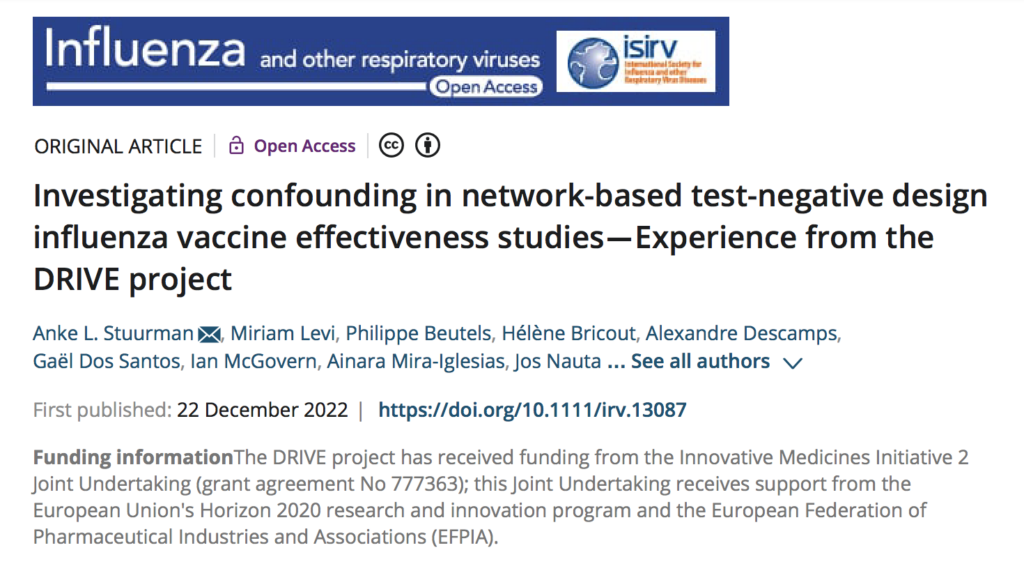Observational studies of seasonal influenza vaccine effectiveness (IVE) are susceptible to bias and confounding, and these factors need to be considered at the study design and analysis stages. In order to make a network successful and sustainable on a large scale, tradeoffs should be made in the collection of the most relevant variables.
This study, whose results have now been published in the Influenza and Other Respiratory Viruses journal, aimed to further explore the impact of potential confounders on IVE in the context of a multi-country test-negative design (TND) network and to check through an in-depth multi-season secondary analysis if our previously chosen parsimonious confounder adjustment strategy could be justified.
The study supports an approach limited to adjusting for age, sex, and calendar time. Practical implications are that requiring fewer variables lowers the threshold for enrollment of sites in IVE studies and simplifies the pooling of data from different IVE studies or study networks.
Find the full article here.

